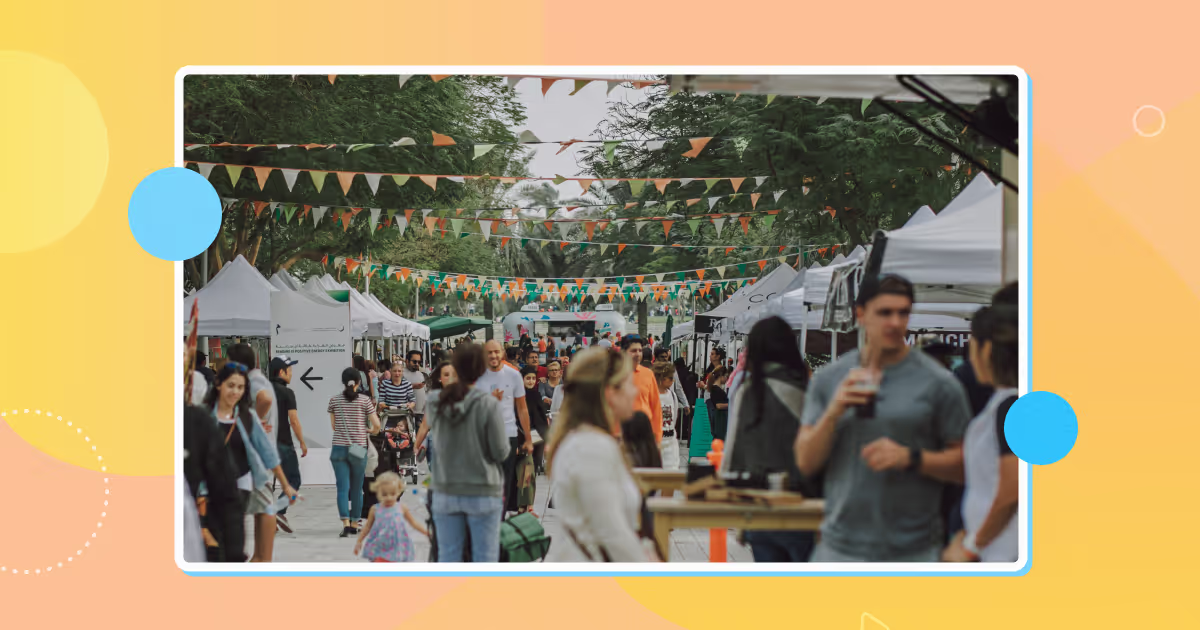In an increasingly competitive marketing landscape, brands are being pushed to go beyond traditional tactics to capture potential customers' attention. Experiential marketing is a proven method for achieving this goal. By creating engaging, memorable consumer experiences that tap into all five senses, marketers can foster deeper relationships with their target audience and stand out from the crowd.
Let's explore what experiential marketing is, how it can benefit your brand and some outstanding examples of successful campaigns!
What is Experiential Marketing?
Experiential marketing is the perfect way to immerse customers in your brand's world. It engages all five senses, creating interactive and unforgettable experiences that will have a long-lasting impact on customers by helping you build relationships and loyalty that will last long beyond the campaign.
By engaging their target audience on a personal level, experiential marketers are able to create memorable experiences with customers that can be leveraged to build relationships and increase brand loyalty.
Experiential Marketing versus Digital Marketing: What is the Difference?
Experiential and digital marketing are strategies used to engage consumers and build brand loyalty. While they conceptually overlap, these strategies differ in their approach to engaging customers. Experiential marketing focuses on creating immersive experiences that establish strong connections between consumers and brands, while digital marketing uses online platforms to deliver targeted messages and campaigns.
Here are the definitions and examples of each:
Experiential Marketing
- Focuses on creating an experience to engage consumers and build brand loyalty.
- Often involves activities like live event planning, interactive games, discounts, or product trials.
- Has a higher ROI than traditional marketing strategies.
- Examples include special pop-up events, product sampling campaigns, and virtual reality experiences.
- While experiential marketing has a huge potential to engage customers and boost sales, it can take a lot of time, money, and effort to create interactive campaigns.
Digital Marketing
- Focuses on using online platforms to reach customers with targeted messages and campaigns.
- It often involves activities like email marketing, SEO research, pay-per-click (PPC) advertising, content marketing, and social media campaigns.
- It can be used to support experiential marketing initiatives.
- Examples include email marketing, SEO, pay-per-click (PPC) advertising, content marketing, and social media campaigns.
Clearing Up Misconceptions: What Experiential Marketing is and Isn't
Experiential marketing is distinct from event-based and influencer marketing, though it contains elements of both. Unlike event-based and influencer marketing, which rely on activities or well-known people to promote a brand, experiential marketing is all about creating memorable experiences for customers to build strong relationships and loyalty.
Experiential marketing also differs from influencer marketing, which involves partnering with content creators to promote a brand's message across their channels. In an experiential marketing campaign, participants may share their experiences on social media, but they are not targeted based solely on the platforms they use. The goal is to create a personal connection between customers and the brand.
Why is Experiential Marketing Important?
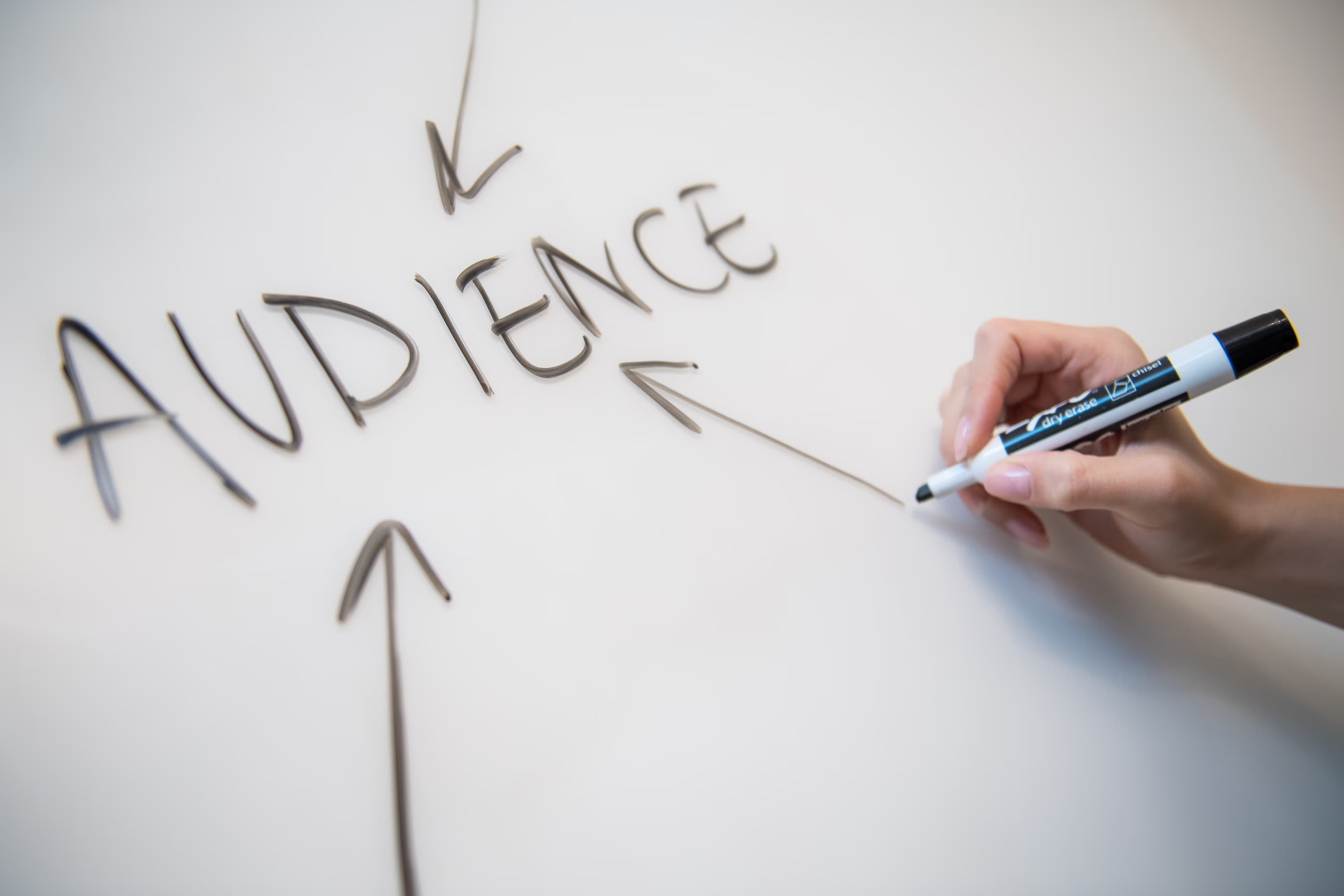
How exactly can experiential marketing unlock your brand's full potential? Here are some of the main advantages of experiential marketing that make it an important part of any modern brand's strategy:
- It's more memorable than traditional marketing: Experiential marketing creates lasting memories that stay with customers long after their experience, leading to longer engagement between your brand and audience.
- It helps to build brand awareness: By reaching wider audiences and introducing potential customers to your brand, experiential marketing generates excitement and helps spread the word naturally.
- It gives potential customers a taste of what it's like to use your products/services: Experiential marketing gives customers a direct, real-time experience of the brand and its products.
- It can drive sales and lead generation: Immersive experiences let businesses generate leads, make conversions and raise sales faster than with digital marketing.
- You'll engage with customers in a more meaningful way: Unlike TV or radio ads, experiential marketing allows for direct engagement between the business and its audience, leading to authentic conversations about products or services.
- It fosters brand loyalty: Creating memorable experiences establishes relationships between brands and their customers on a deeper level. This leads to higher levels of customer loyalty and engagement.
- It generates word-of-mouth advertising: Positive experiences lead to natural referrals, resulting in increased organic growth for the company.
- Generates user-generated content (UGC): UGC can be leveraged by companies through experiential campaigns. Excited participants are often eager to document their experience across social media platforms sharing stories with friends and followers alike.
How Experiential Marketing Can Build Stronger Communities
Experiential marketing is more than just a marketing tactic - it's a way to create meaningful connections with your audience and build a community of loyal customers. Here are a few ways brands can use experiential marketing to foster stronger community connections:
- Facilitating Collaborative and Participatory Experiences
Experiential marketing can also foster community building by facilitating collaborative and participatory experiences. By providing opportunities for customers to interact with each other and with the brand in creative ways, brands can build a sense of shared ownership and investment in the community.
- Providing Value and Utility
By providing value and utility through experiential marketing, brands can demonstrate their commitment to the community and build trust with customers. For example, a brand could host a workshop or training session that provides practical skills and knowledge to members of the community.
- Personalizing Customer Interactions
Experiential marketing offers brands an opportunity to engage with customers on a personal level. By creating memorable and unique experiences, brands can foster a deeper connection with their customers, which can lead to increased loyalty and advocacy.
- Collecting Valuable Feedback for Continuous Improvement
Experiential marketing provides an opportunity for brands to collect valuable feedback from their community members. By soliciting and acting on this feedback, brands can create more meaningful and engaging experiences that reflect the interests and values of their audience.
Main Types of Experiential Marketing Campaigns
Now it's time to get creative and decide which type of experiential marketing campaign will best highlight your brand. Here are some examples of what experiential marketing can look like for your business:
Events
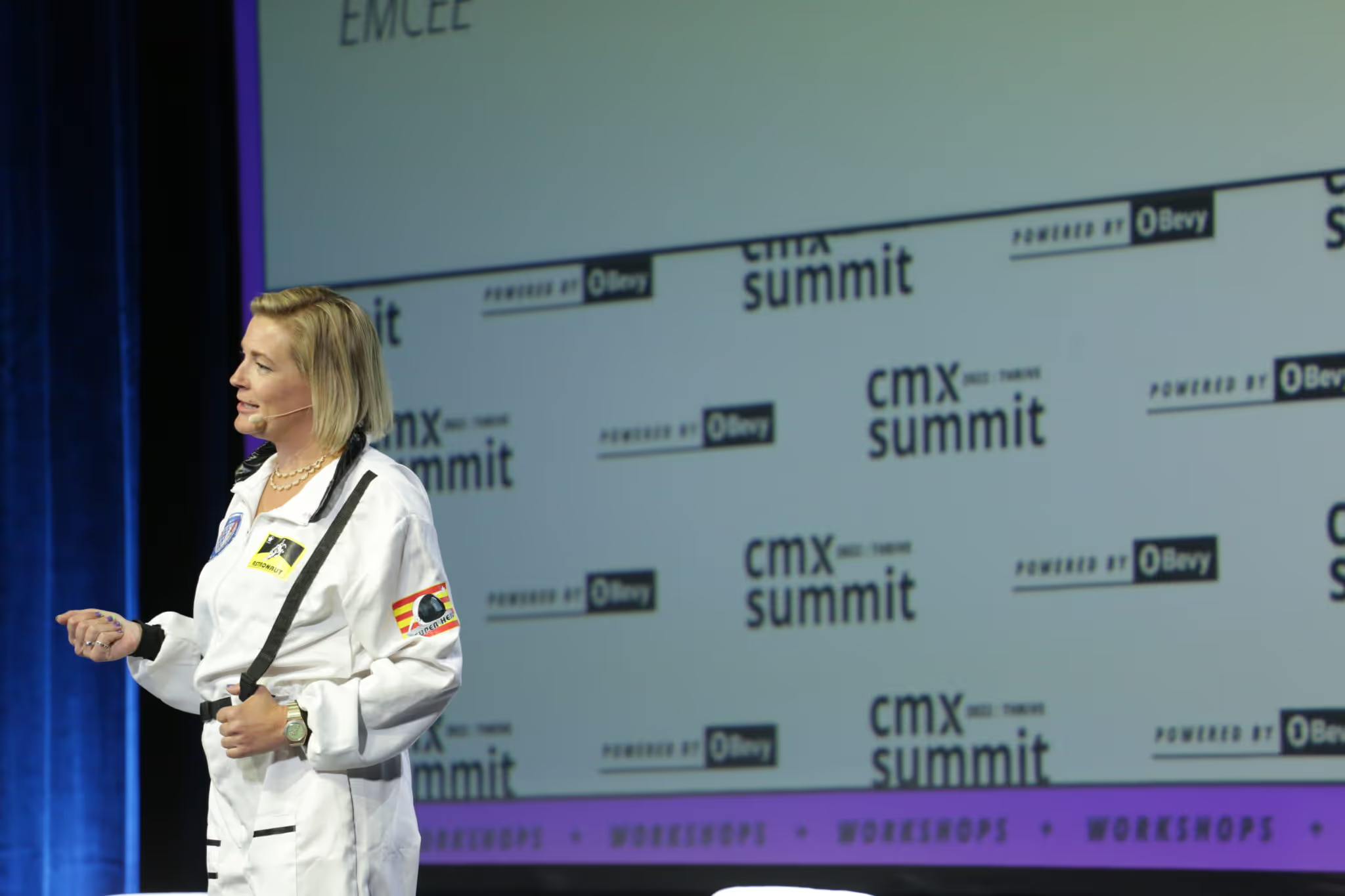
Events are a powerful way to build relationships and bring the community together. From conferences, product launches, and trade shows to experiential parties, events are a unique way for your customers to interact with you in person and experience your products first-hand. Not only do these events build brand awareness and loyalty, but they also provide an opportunity to foster strong connections between you and your customers that will last long after the event is over.
Pop-up Stores

Pop-up stores can serve a variety of different communities since their location-independent. Pop-up shops typically offer discounts and interactive activities (such as product testing) to draw customers in. They are also a great way to build consumer loyalty in different locations since your pop-up may move around to different regions.
Product Samplings and Product Demos
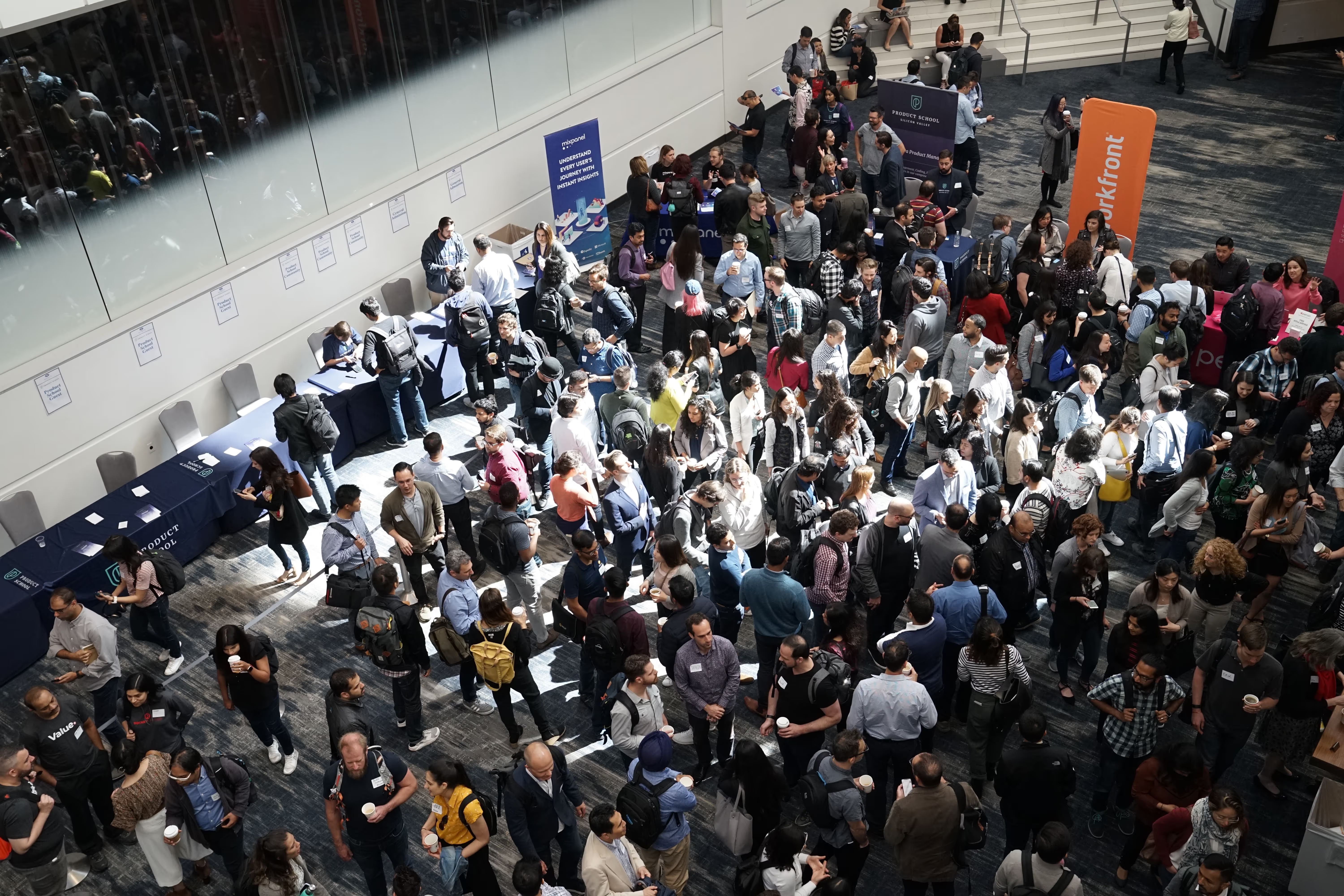
Free samples can gather and educate a community without putting a prohibitive cost wall up. Product samplings and product demos provide customers with the chance to try out products they may not have otherwise. They give people an opportunity to get the product in their hand and experience it first-hand and skip all of the research and guesswork it takes to assess if your product is right for them.
Classes and Workshops
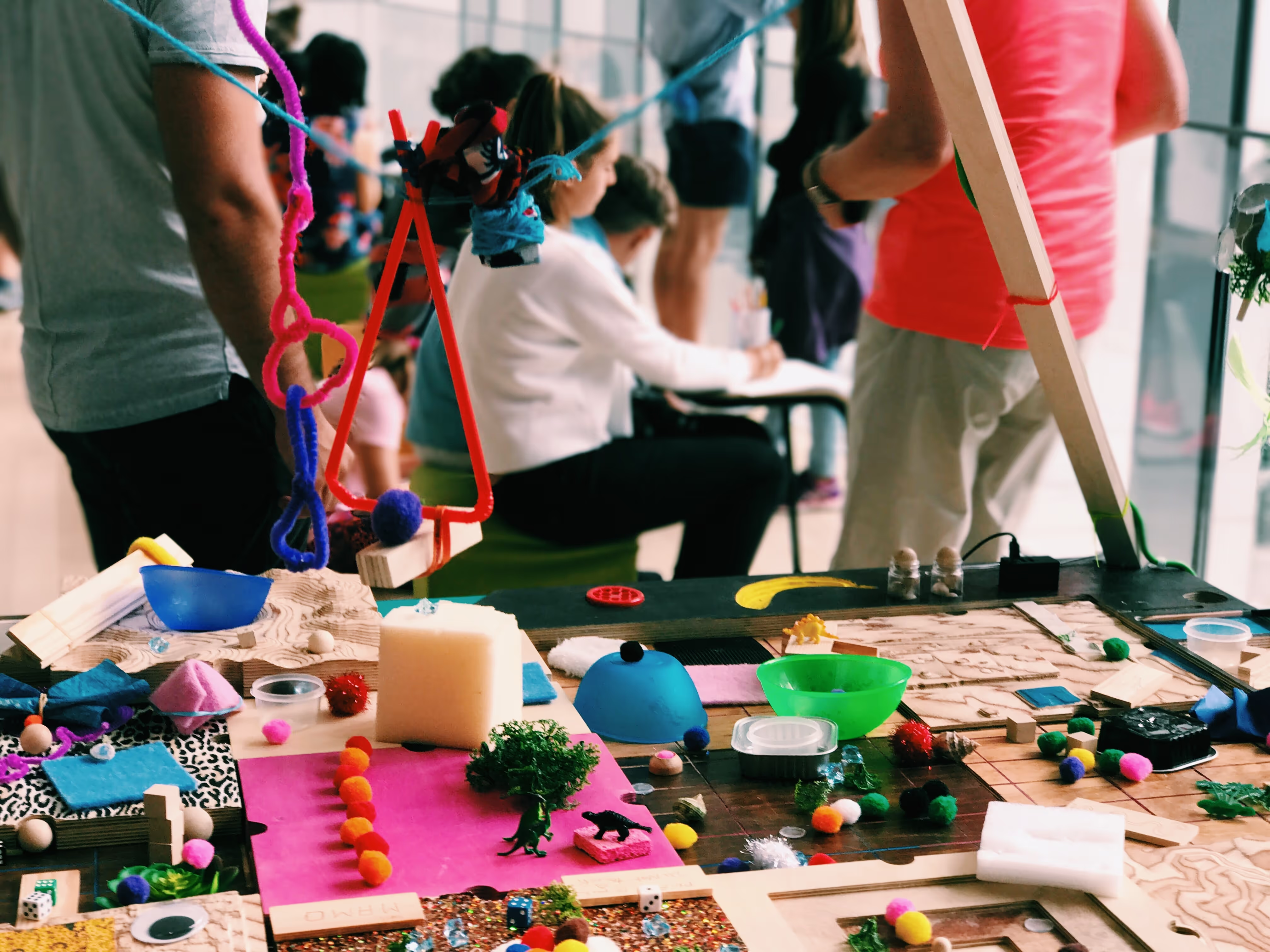
Classes and workshops can be a great way to let customers experience your brand in an educational setting. They also offer value by providing customers with valuable resources and/or skills. Popular examples include cooking classes, DIY workshops, and webinars.
Conferences
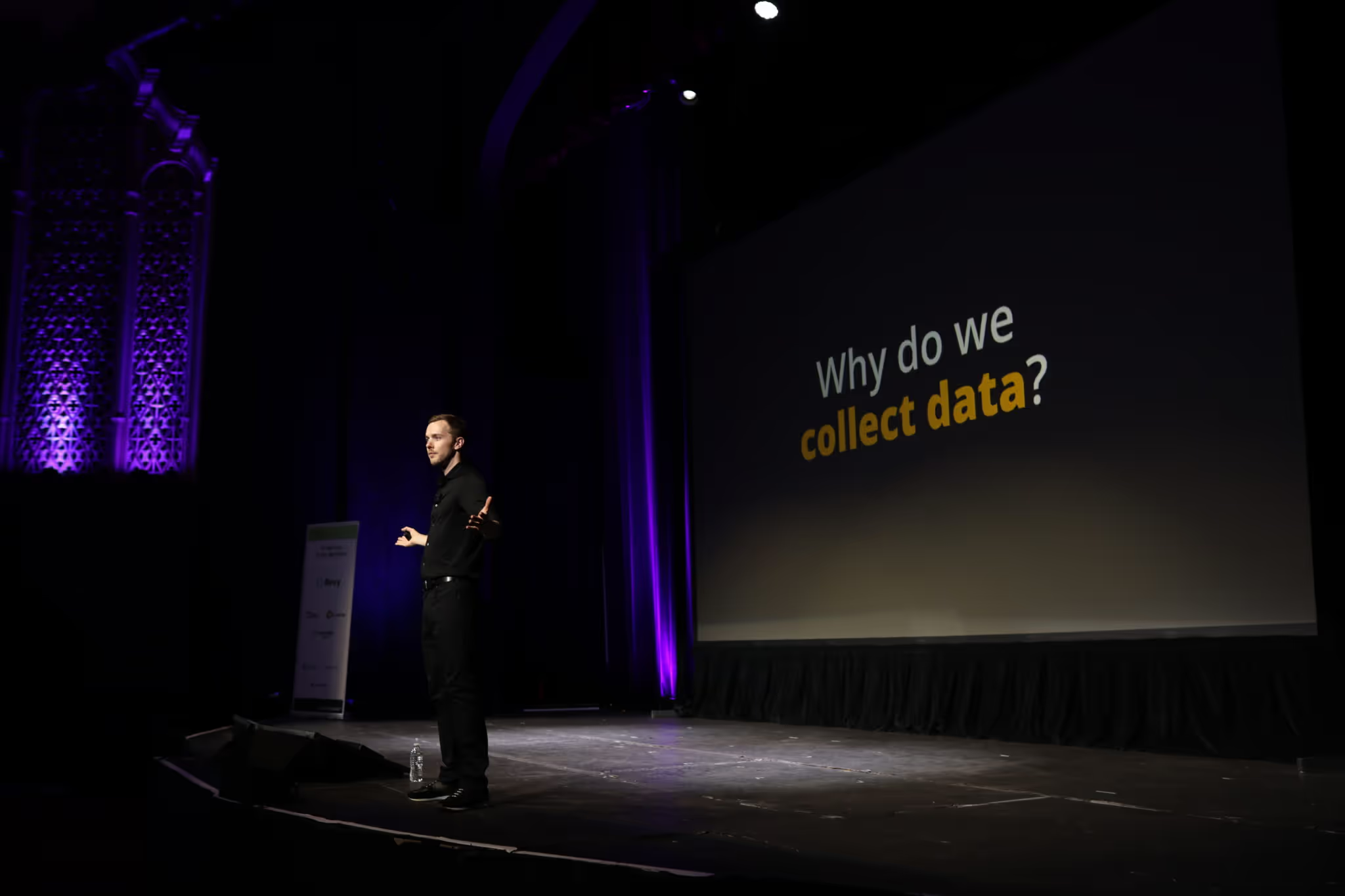
People love to gather, and conferences are the perfect setting to experience your brand in an impactful way. People are open and interested to learn about new brands in this setting, which helps to cultivate customer relationships and trust.
Launch Parties
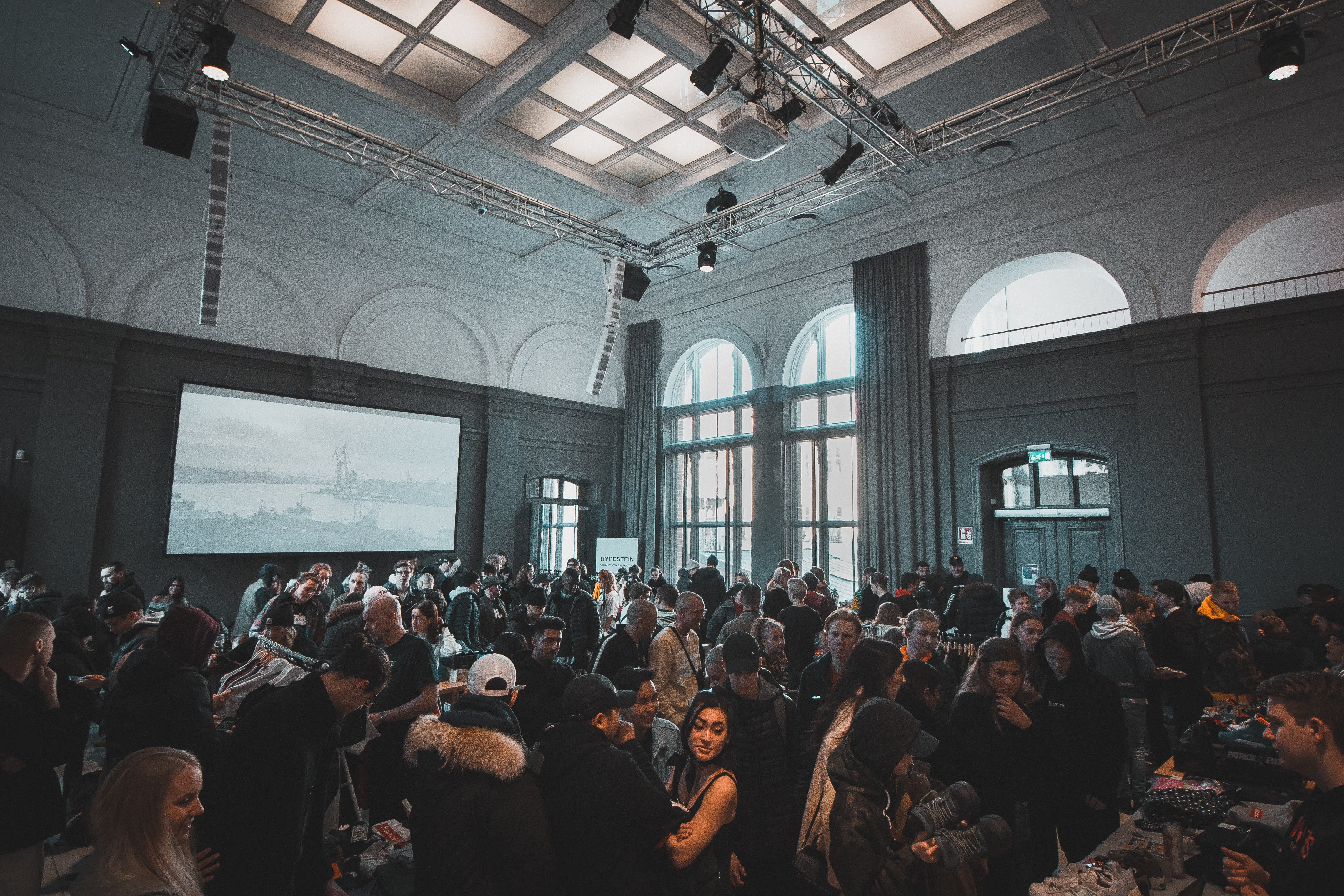
Nothing's more exciting than hyping up a new product or service with a launch party! Launch parties are the perfect way to bring people together and show off what makes your brand unique. They typically include music, food, and a lot of energy to make the event unforgettable. Don't forget about following through with your guests so that you can continue to engage with them for future events.
How to Develop an Effective Experiential Marketing Campaign
Ready to get started with your experiential marketing campaign? Here are some steps you should consider when creating an effective strategy:
Identify Your Audience/Customer Personas
It is important to have a clear understanding of who you are targeting before starting any campaigns. Research your target market and develop detailed customer personas using demographic, psychographic, and behavioral information.
Some considerations when developing your customer personas include age, gender, occupation, interests, values, lifestyle, and geographical location.
Take note of these insights and come up with one theoretical person that best represents your target audience. You can then use your archetype to guide you through the marketing process.
You can find this data by sending out surveys, joining online forums, and analyzing studies done in your industry.
Set Clear Campaign Goals and Metrics
Before launching your campaign, be sure to establish measurable goals for success (e.g., number of attendees and engagement rate). This will make it easier to track the effectiveness of your campaign and identify where improvements can be made.
Once you've chosen your campaign goals, you'll be able to reverse-engineer them. For example, if your goal is to increase brand awareness by 1,000 viewers in one month, you need to figure out what activities and tactics you need to do in order to reach that goal.
Develop a Cross-Channel Marketing Strategy
Develop a plan that utilizes multiple channels (email, social media, etc.) to reach potential customers and create awareness about the event. You should be able to segment and tailor your message to each channel in order to maximize reach.
- Create a website and registration page for the event
- Use social media to spread awareness of the event
- Email potential customers about the event
- Utilize influencers/ambassadors to promote the event
- Analyze the success of your event by using optimization and tracking software
Engage With Your Attendees at Every Stage of Their Experience
Make sure that you are engaging with attendees before, during, and after the event in order to generate interest, excitement, and positive sentiment around your brand. This helps guide participants through your brand funnel, which brings them one step closer to becoming loyal customers.
Here's what a successful experiential marketing engagement strategy looks like:
- Share teasers of the event on social media
- Connect with influencers/ambassadors to spread awareness
- Send out emails announcing the event
- Capture photos and videos throughout the event to share on social media
- Provide giveaways or incentives to participants
- Follow-up emails to thank attendees and encourage further engagement with your brand
- Provide a call to action in every communication (e.g., sign-up for the newsletter, follow your brand on social media)
Track Your Event Performance and Success
It is essential for marketers to track performance metrics such as ROI or conversions in order to understand how successful their efforts were overall, as well as identify areas where improvements can be made in future campaigns.
Monitor the performance of your experiential campaigns throughout all stages in order to evaluate what works best for future events and optimize your overall strategy.
Examples of Great Experiential Marketing Campaigns
It helps to have some inspiring examples of experiential marketing to draw inspiration from. Here are some great experiential examples to get your creative juices flowing:
Airbnb and the Home Alone House
Fans of the famous holiday movie "Home Alone" had a chance in 2021 to spend one night in the iconic house from the movie. Airbnb partnered with 20th Century Fox to create this experiential opportunity, allowing participants to stay in the house for one night with "Buzz" (an actor from the movie) as their host.
One night only cost the lucky winner $25, which brought immeasurable publicity to the Airbnb brand.
Refinery29: 29Rooms
Refinery29 has been hosting the 29Rooms event for three years, which consists of 29 individually branded and curated rooms with creative activities such as sound-making punching bags. Each year has a different theme, the most recent being "Turn It Into Art," and the rooms are designed in collaboration with various brand partners ranging from artists to consumer-facing companies. Attendees are invited to take part in an immersive experience, creating something unique in each room.
Netflix & Luke's Diner
Luke's Diner, the popular meeting spot for the main characters of the popular show "Gilmore Girls," was recreated at 200+ coffee shops across the US and Canada for one day. The company partnered with participating coffee shops to provide Luke's signs, aprons, and even customized cup sleeves. Superfans flocked to these locations, providing a boost for both Netflix and the local coffee shops they partnered with.
Giveaways such as free coffee and Netflix memberships added extra excitement to this experiential branding campaign.
The CMX Summit
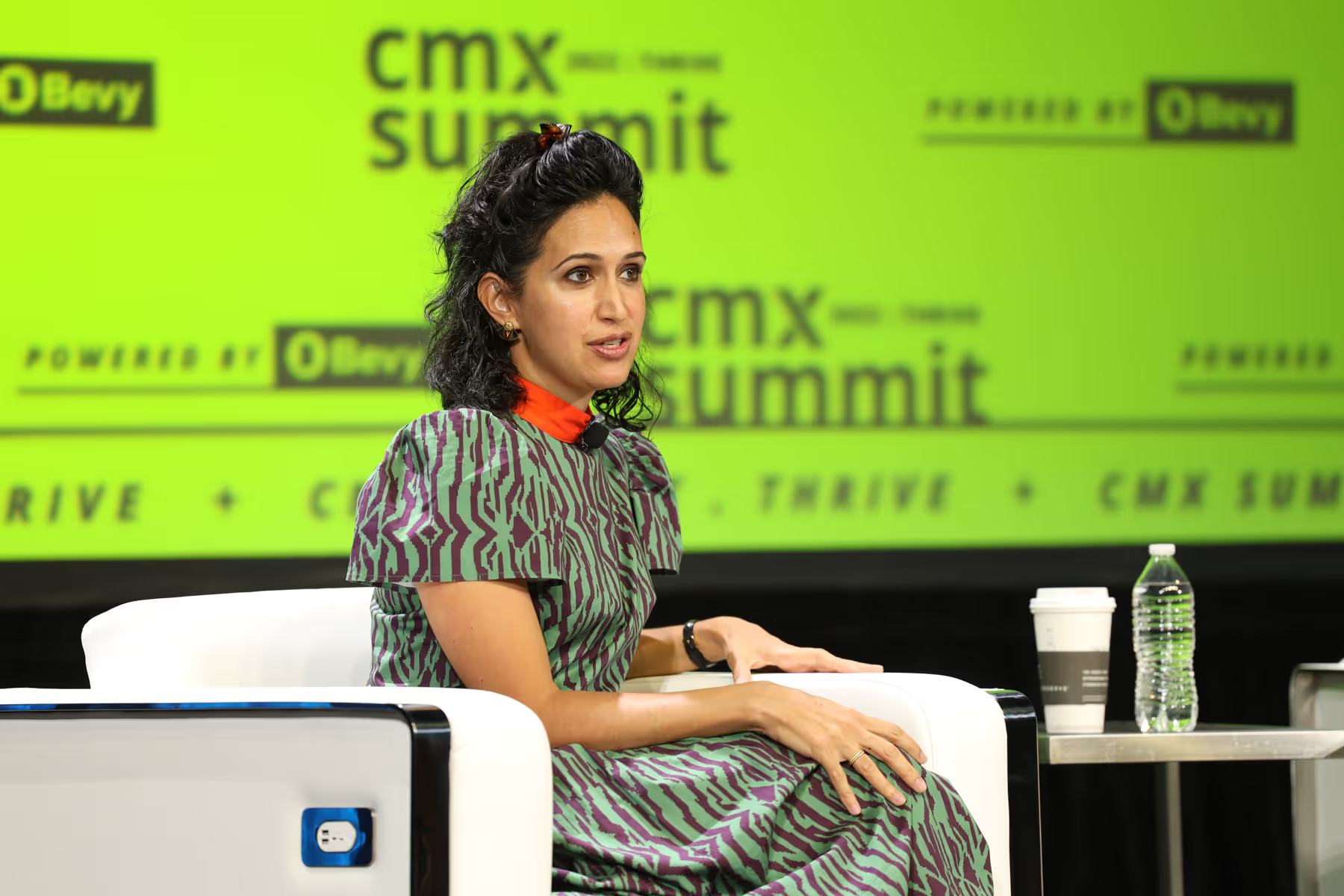
The CMX Summit is the world’s largest annual conference for community professionals, community-driven companies, and anyone passionate about building thriving communities. Since 2014, CMX Summit has hosted hundreds of attendees from various parts of the globe, providing them with a platform to gain insights from top experts in the field, connect with other community professionals, and discover innovative concepts and strategies that can be utilized in their own communities.
CMX Connect
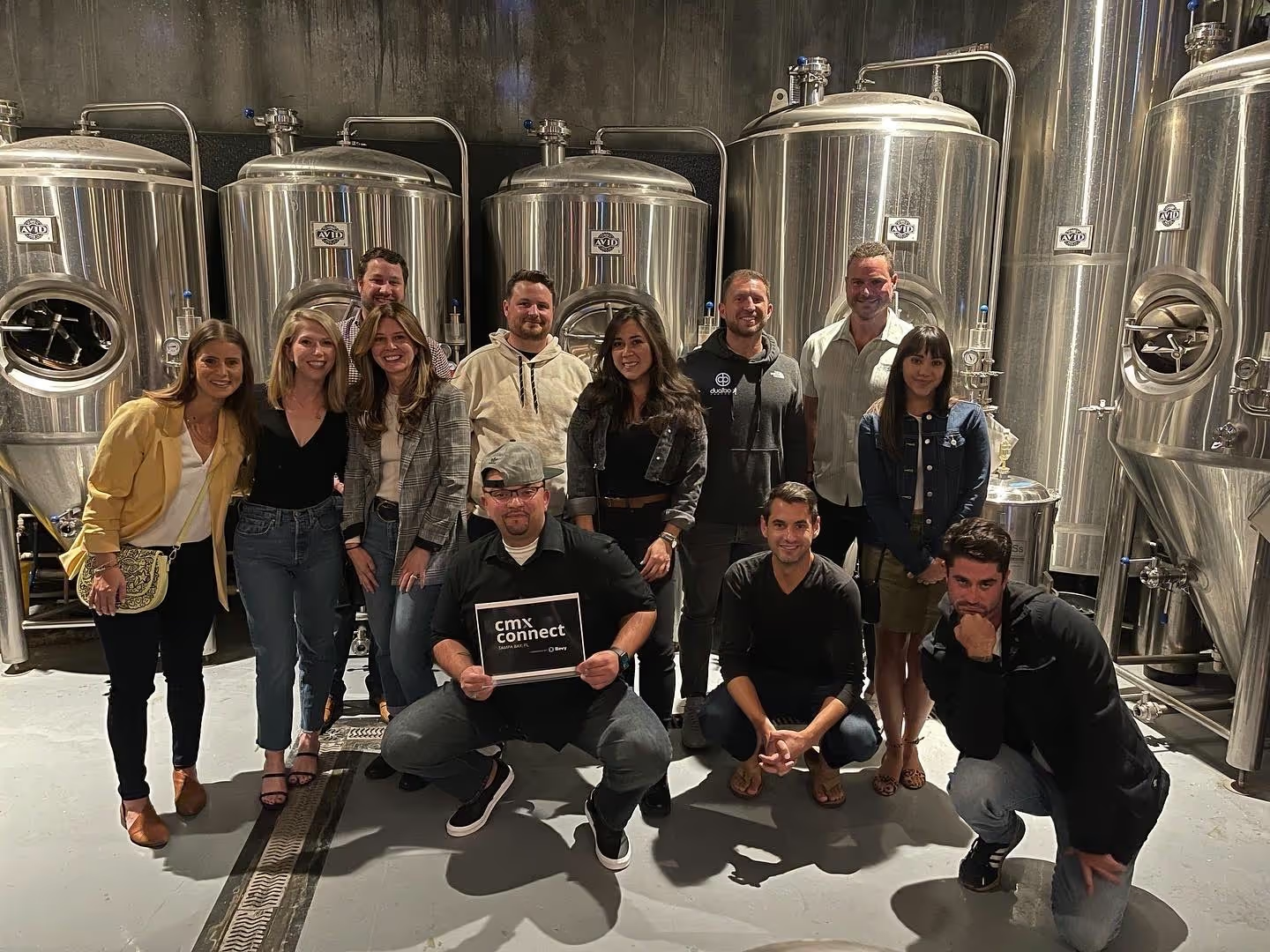
CMX Connect is a local event platform to inform and empower community builders while similarly providing an opportunity for networking between professionals in their respective areas. Through engaging conversations, informative presentations, and knowledge exchange about the world of community-driven and customer-to-customer marketing, these events are designed to equip marketers with all they need to know.
This ongoing educational peer series happens around the world, including in major cities such as Austin, Calgary, LA, New York, Boston, Seattle, San Francisco, and Toronto.
How to Select the Right Experiential Marketing Event Platform
Experiential marketing events can be a great way to engage your audience and create memorable experiences that help build your brand. However, choosing the right event platform can be a daunting task. There are many factors to consider, from the features and capabilities of the platform to the level of support provided by the vendor.
Some key features to look for in an event platform include:
- Registration and Ticketing: A good platform should make it easy for attendees to register and purchase tickets for your event. Bevy provides an intuitive registration process and customizable ticketing options to help you manage your event's attendance.
- Event Management: The platform should provide tools to help you manage your event, such as scheduling, attendee management, and analytics. Bevy offers robust event management tools, allowing you to schedule and manage events easily and track attendance and engagement analytics.
- Networking: Depending on your goals, you may want a platform that includes networking features like chat or messaging. Bevy provides a community-driven platform that allows attendees to engage with each other and with your brand.
- Integration: It's important to consider how well the platform integrates with other tools you may be using, such as CRM or marketing automation software. Bevy provides seamless integrations with a variety of third-party tools, making it easy to manage your event data across multiple systems.
Overall, Bevy is a versatile and engaging experiential marketing event platform that is definitely worth considering. With its user-friendly interface, customizable ticketing options, robust event management tools, and networking features, it's a great choice for any brand looking to connect with its community through events. To learn more about how Bevy can help you host successful events, request a demo today.

